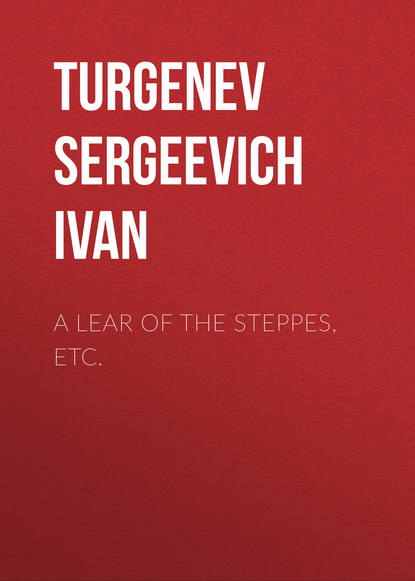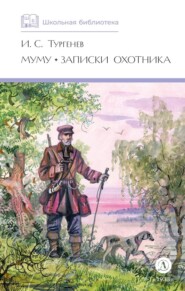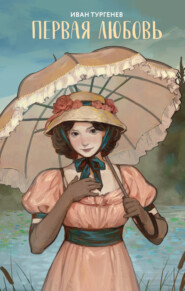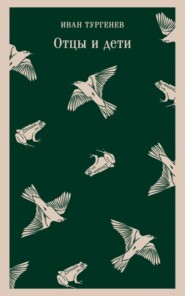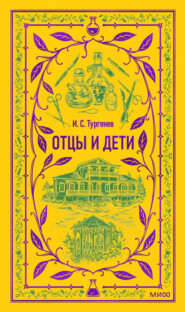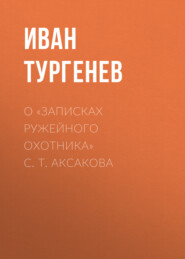По всем вопросам обращайтесь на: info@litportal.ru
(©) 2003-2025.
✖
A Lear of the Steppes, etc.
Настройки чтения
Размер шрифта
Высота строк
Поля
Harlov paused again.
‘Don’t you stop here,’ he began again. ‘You go along to the house. Things are managed there now – it’s first-rate. Volodka’… Here he faltered for a second. ‘Our Volodka’s a good hand at everything. He’s a fine fellow! yes, indeed, and a fine scoundrel too!’
I did not know what to say; Martin Petrovitch spoke very tranquilly.
‘And you go and see my daughters. You remember, I daresay, I had daughters. They’re managers too … clever ones. But I’m growing old, my lad; I’m on the shelf. Time to repose, you know…’
‘Nice sort of repose!’ I thought, glancing round. ‘Martin Petrovitch!’ I uttered aloud, ‘you really must come and see us.’
Harlov looked at me. ‘Go along, my lad, I tell you.’
‘Don’t hurt mamma’s feelings; come and see us.’
‘Go away, my lad, go away,’ persisted Harlov. ‘What do you want to talk to me for?’
‘If you have no carriage, mamma will send you hers.’
‘Go along!’
‘But, really and truly, Martin Petrovitch!’
Harlov looked down again, and I fancied that his cheeks, dingy as though covered with earth, faintly flushed.
‘Really, do come,’ I went on. ‘What’s the use of your sitting here? of your making yourself miserable?’
‘Making myself miserable?’ he commented hesitatingly.
‘Yes, to be sure – making yourself miserable!’ I repeated.
Harlov said nothing, and seemed lost in musing. Emboldened by his silence, I determined to be open, to act straightforwardly, bluntly. (Do not forget, I was only fifteen then.)
‘Martin Petrovitch!’ I began, seating myself beside him. ‘I know everything, you see, positively everything. I know how your son-in-law is treating you – doubtless with the consent of your daughters. And now you are in such a position… But why lose heart?’
Harlov still remained silent, and simply dropped in his line; while I – what a sensible fellow, what a sage I felt!
‘Doubtless,’ I began again, ‘you acted imprudently in giving up everything to your daughters. It was most generous on your part, and I am not going to blame you. In our days it is a quality only too rare! But since your daughters are so ungrateful, you ought to show a contempt – yes, a contempt – for them … and not fret – ’
‘Stop!’ muttered Harlov suddenly, gnashing his teeth, and his eyes, staring at the pond, glittered wrathfully… ‘Go away!’
‘But, Martin Petrovitch – ’
‘Go away, I tell you, … or I’ll kill you!’
I had come quite close to him; but at the last words I instinctively jumped up. ‘What did you say, Martin Petrovitch?’
‘I’ll kill you, I tell you; go away!’ With a wild moan, a roar, the words broke from Harlov’s breast, but he did not turn his head, and still stared wrathfully straight in front of him. ‘I’ll take you and fling you and your fool’s counsel into the water. You shall learn to pester the old, little milksop!’
‘He’s gone mad!’ flashed through my mind.
I looked at him more attentively, and was completely petrified; Martin Petrovitch was weeping!! Tear after tear rolled from his eyelashes down his cheeks … while his face had assumed an expression utterly savage…
‘Go away!’ he roared once more, ‘or I’ll kill you, by God! for an example to others!’
He was shaking all over from side to side, and showing his teeth like a wild boar. I snatched up my gun and took to my heels. My dog flew after me, barking. He, too, was frightened.
When I got home, I naturally did not, by so much as a word, to my mother, hint at what I had seen; but coming across Souvenir, I told him – the devil knows why – all about it. That loathsome person was so delighted at my story, shrieking with laughter, and even dancing with pleasure, that I could hardly forbear striking him.
‘Ah! I should like,’ he kept repeating breathless with laughter, ‘to see that fiend, the Swede, Harlov, crawling into the mud and sitting in it…’
‘Go over to the pond if you’re so curious.’
‘Yes; but how if he kills me?’
I felt horribly sick at Souvenir, and regretted my ill-timed confidence… Zhitkov, to whom he repeated my tale, looked at the matter somewhat differently.
‘We shall have to call in the police,’ he concluded, ‘or, may be, we may have to send for a battalion of military.’
His forebodings with regard to the military battalion did not come true; but something extraordinary really did happen.
XXII
In the middle of October, three weeks after my interview with Martin Petrovitch, I was standing at the window of my own room in the second storey of our house, and thinking of nothing at all, I looked disconsolately into the yard and the road that lay beyond it. The weather had been disgusting for the last five days. Shooting was not even to be thought of. All things living had hidden themselves; even the sparrows made no sound, and the rooks had long ago disappeared from sight. The wind howled drearily, then whistled spasmodically. The low-hanging sky, unbroken by one streak of light, had changed from an unpleasant whitish to a leaden and still more sinister hue; and the rain, which had been pouring and pouring, mercilessly and unceasingly, had suddenly become still more violent and more driving, and streamed with a rushing sound over the panes. The trees had been stripped utterly bare, and turned a sort of grey. It seemed they had nothing left to plunder; yet the wind would not be denied, but set to harassing them once more. Puddles, clogged with dead leaves, stood everywhere. Big bubbles, continually bursting and rising up again, leaped and glided over them. Along the roads, the mud lay thick and impassable. The cold pierced its way indoors through one’s clothes to the very bones. An involuntary shiver passed over the body, and how sick one felt at heart! Sick, precisely, not sad. It seemed there would never again in the world be sunshine, nor brightness, nor colour, but this rain and mire and grey damp, and raw fog would last for ever, and for ever would the wind whine and moan! Well, I was standing moodily at my window, and I remember a sudden darkness came on – a bluish darkness – though the clock only pointed to twelve. Suddenly I fancied I saw a bear dash across our yard from the gates to the steps! Not on all-fours, certainly, but as he is depicted when he gets up on his hind-paws. I could not believe my eyes. If it were not a bear I had seen, it was, any way, something enormous, black shaggy… I was still lost in wonder as to what it could be, when suddenly I heard below a furious knocking. It seemed something utterly unlooked for, something terrible was stumbling headlong into our house. Then began a commotion, a hurrying to and fro…
I quickly went down the stairs, ran into the dining-room…
At the drawing-room door facing me stood my mother, as though rooted to the spot. Behind her, peered several scared female faces. The butler, two footmen, and a page, with his mouth wide open with astonishment, were packed together in the doorway of the hall. In the middle of the dining-room, covered with mire, dishevelled, tattered, and soaking wet – so wet that steam rose all round and water was running in little streams over the floor – knelt, shaking ponderously, as it were, at the last gasp … the very monster I had seen dashing across the yard! And who was this monster? Harlov! I came up on one side, and saw, not his face, but his head, which he was clutching, with both hands in the hair that blinded him with filth. He was breathing heavily, brokenly; something positively rattled in his throat – and in all the bespattered dark mass, the only thing that could be clearly distinguished was the tiny whites of the eyes, straying wildly about. He was awful! The dignitary came into my mind whom he had once crushed for comparing him to a mastodon. Truly, so might have looked some antediluvian creature that had just escaped another more powerful monster, attacking it in the eternal slime of the primeval swamps.
‘Martin Petrovitch!’ my mother cried at last, and she clasped her hands. ‘Is that you? Good God! Merciful heavens!’
‘I … I …’ we heard a broken voice, which seemed with effort and painfully to dwell on each sound. ‘Alas! It is I!’
‘But what has happened to you? Mercy upon us!’
‘Natalia Nikolaev … na … I have … run straight … to you … from home … on foot…’
‘Through such mud! But you don’t look like a man. Get up; sit down, anyway… And you,’ she turned to the maid-servants, ‘run quick for cloths. And haven’t you some dry clothes?’ she asked the butler.
The butler gesticulated as though to say, Is it likely for such a size?.. ‘But we could get a coverlet,’ he replied, ‘or, there’s a new horse-rug.’
‘But get up, get up, Martin Petrovitch, sit down,’ repeated my mother.
‘They’ve turned me out, madam,’ Harlov moaned suddenly, and he flung his head back and stretched his hands out before him. ‘They’ve turned me out, Natalia Nikolaevna! My own daughters, out of my own home…’
My mother sighed and groaned.
‘What are you saying? Turned you out! What wickedness! what wickedness!’ (She crossed herself.) ‘But do get up, Martin Petrovitch, I beg you!’
Two maid-servants came in with cloths and stood still before Harlov. It was clear they did not know how to attack this mountain of filth. ‘They have turned me out, madam, they have turned me out!’ Harlov kept repeating meanwhile. The butler returned with a large woollen coverlet, and he, too, stood still in perplexity. Souvenir’s little head was thrust in at a door and vanished again.
‘Don’t you stop here,’ he began again. ‘You go along to the house. Things are managed there now – it’s first-rate. Volodka’… Here he faltered for a second. ‘Our Volodka’s a good hand at everything. He’s a fine fellow! yes, indeed, and a fine scoundrel too!’
I did not know what to say; Martin Petrovitch spoke very tranquilly.
‘And you go and see my daughters. You remember, I daresay, I had daughters. They’re managers too … clever ones. But I’m growing old, my lad; I’m on the shelf. Time to repose, you know…’
‘Nice sort of repose!’ I thought, glancing round. ‘Martin Petrovitch!’ I uttered aloud, ‘you really must come and see us.’
Harlov looked at me. ‘Go along, my lad, I tell you.’
‘Don’t hurt mamma’s feelings; come and see us.’
‘Go away, my lad, go away,’ persisted Harlov. ‘What do you want to talk to me for?’
‘If you have no carriage, mamma will send you hers.’
‘Go along!’
‘But, really and truly, Martin Petrovitch!’
Harlov looked down again, and I fancied that his cheeks, dingy as though covered with earth, faintly flushed.
‘Really, do come,’ I went on. ‘What’s the use of your sitting here? of your making yourself miserable?’
‘Making myself miserable?’ he commented hesitatingly.
‘Yes, to be sure – making yourself miserable!’ I repeated.
Harlov said nothing, and seemed lost in musing. Emboldened by his silence, I determined to be open, to act straightforwardly, bluntly. (Do not forget, I was only fifteen then.)
‘Martin Petrovitch!’ I began, seating myself beside him. ‘I know everything, you see, positively everything. I know how your son-in-law is treating you – doubtless with the consent of your daughters. And now you are in such a position… But why lose heart?’
Harlov still remained silent, and simply dropped in his line; while I – what a sensible fellow, what a sage I felt!
‘Doubtless,’ I began again, ‘you acted imprudently in giving up everything to your daughters. It was most generous on your part, and I am not going to blame you. In our days it is a quality only too rare! But since your daughters are so ungrateful, you ought to show a contempt – yes, a contempt – for them … and not fret – ’
‘Stop!’ muttered Harlov suddenly, gnashing his teeth, and his eyes, staring at the pond, glittered wrathfully… ‘Go away!’
‘But, Martin Petrovitch – ’
‘Go away, I tell you, … or I’ll kill you!’
I had come quite close to him; but at the last words I instinctively jumped up. ‘What did you say, Martin Petrovitch?’
‘I’ll kill you, I tell you; go away!’ With a wild moan, a roar, the words broke from Harlov’s breast, but he did not turn his head, and still stared wrathfully straight in front of him. ‘I’ll take you and fling you and your fool’s counsel into the water. You shall learn to pester the old, little milksop!’
‘He’s gone mad!’ flashed through my mind.
I looked at him more attentively, and was completely petrified; Martin Petrovitch was weeping!! Tear after tear rolled from his eyelashes down his cheeks … while his face had assumed an expression utterly savage…
‘Go away!’ he roared once more, ‘or I’ll kill you, by God! for an example to others!’
He was shaking all over from side to side, and showing his teeth like a wild boar. I snatched up my gun and took to my heels. My dog flew after me, barking. He, too, was frightened.
When I got home, I naturally did not, by so much as a word, to my mother, hint at what I had seen; but coming across Souvenir, I told him – the devil knows why – all about it. That loathsome person was so delighted at my story, shrieking with laughter, and even dancing with pleasure, that I could hardly forbear striking him.
‘Ah! I should like,’ he kept repeating breathless with laughter, ‘to see that fiend, the Swede, Harlov, crawling into the mud and sitting in it…’
‘Go over to the pond if you’re so curious.’
‘Yes; but how if he kills me?’
I felt horribly sick at Souvenir, and regretted my ill-timed confidence… Zhitkov, to whom he repeated my tale, looked at the matter somewhat differently.
‘We shall have to call in the police,’ he concluded, ‘or, may be, we may have to send for a battalion of military.’
His forebodings with regard to the military battalion did not come true; but something extraordinary really did happen.
XXII
In the middle of October, three weeks after my interview with Martin Petrovitch, I was standing at the window of my own room in the second storey of our house, and thinking of nothing at all, I looked disconsolately into the yard and the road that lay beyond it. The weather had been disgusting for the last five days. Shooting was not even to be thought of. All things living had hidden themselves; even the sparrows made no sound, and the rooks had long ago disappeared from sight. The wind howled drearily, then whistled spasmodically. The low-hanging sky, unbroken by one streak of light, had changed from an unpleasant whitish to a leaden and still more sinister hue; and the rain, which had been pouring and pouring, mercilessly and unceasingly, had suddenly become still more violent and more driving, and streamed with a rushing sound over the panes. The trees had been stripped utterly bare, and turned a sort of grey. It seemed they had nothing left to plunder; yet the wind would not be denied, but set to harassing them once more. Puddles, clogged with dead leaves, stood everywhere. Big bubbles, continually bursting and rising up again, leaped and glided over them. Along the roads, the mud lay thick and impassable. The cold pierced its way indoors through one’s clothes to the very bones. An involuntary shiver passed over the body, and how sick one felt at heart! Sick, precisely, not sad. It seemed there would never again in the world be sunshine, nor brightness, nor colour, but this rain and mire and grey damp, and raw fog would last for ever, and for ever would the wind whine and moan! Well, I was standing moodily at my window, and I remember a sudden darkness came on – a bluish darkness – though the clock only pointed to twelve. Suddenly I fancied I saw a bear dash across our yard from the gates to the steps! Not on all-fours, certainly, but as he is depicted when he gets up on his hind-paws. I could not believe my eyes. If it were not a bear I had seen, it was, any way, something enormous, black shaggy… I was still lost in wonder as to what it could be, when suddenly I heard below a furious knocking. It seemed something utterly unlooked for, something terrible was stumbling headlong into our house. Then began a commotion, a hurrying to and fro…
I quickly went down the stairs, ran into the dining-room…
At the drawing-room door facing me stood my mother, as though rooted to the spot. Behind her, peered several scared female faces. The butler, two footmen, and a page, with his mouth wide open with astonishment, were packed together in the doorway of the hall. In the middle of the dining-room, covered with mire, dishevelled, tattered, and soaking wet – so wet that steam rose all round and water was running in little streams over the floor – knelt, shaking ponderously, as it were, at the last gasp … the very monster I had seen dashing across the yard! And who was this monster? Harlov! I came up on one side, and saw, not his face, but his head, which he was clutching, with both hands in the hair that blinded him with filth. He was breathing heavily, brokenly; something positively rattled in his throat – and in all the bespattered dark mass, the only thing that could be clearly distinguished was the tiny whites of the eyes, straying wildly about. He was awful! The dignitary came into my mind whom he had once crushed for comparing him to a mastodon. Truly, so might have looked some antediluvian creature that had just escaped another more powerful monster, attacking it in the eternal slime of the primeval swamps.
‘Martin Petrovitch!’ my mother cried at last, and she clasped her hands. ‘Is that you? Good God! Merciful heavens!’
‘I … I …’ we heard a broken voice, which seemed with effort and painfully to dwell on each sound. ‘Alas! It is I!’
‘But what has happened to you? Mercy upon us!’
‘Natalia Nikolaev … na … I have … run straight … to you … from home … on foot…’
‘Through such mud! But you don’t look like a man. Get up; sit down, anyway… And you,’ she turned to the maid-servants, ‘run quick for cloths. And haven’t you some dry clothes?’ she asked the butler.
The butler gesticulated as though to say, Is it likely for such a size?.. ‘But we could get a coverlet,’ he replied, ‘or, there’s a new horse-rug.’
‘But get up, get up, Martin Petrovitch, sit down,’ repeated my mother.
‘They’ve turned me out, madam,’ Harlov moaned suddenly, and he flung his head back and stretched his hands out before him. ‘They’ve turned me out, Natalia Nikolaevna! My own daughters, out of my own home…’
My mother sighed and groaned.
‘What are you saying? Turned you out! What wickedness! what wickedness!’ (She crossed herself.) ‘But do get up, Martin Petrovitch, I beg you!’
Two maid-servants came in with cloths and stood still before Harlov. It was clear they did not know how to attack this mountain of filth. ‘They have turned me out, madam, they have turned me out!’ Harlov kept repeating meanwhile. The butler returned with a large woollen coverlet, and he, too, stood still in perplexity. Souvenir’s little head was thrust in at a door and vanished again.





